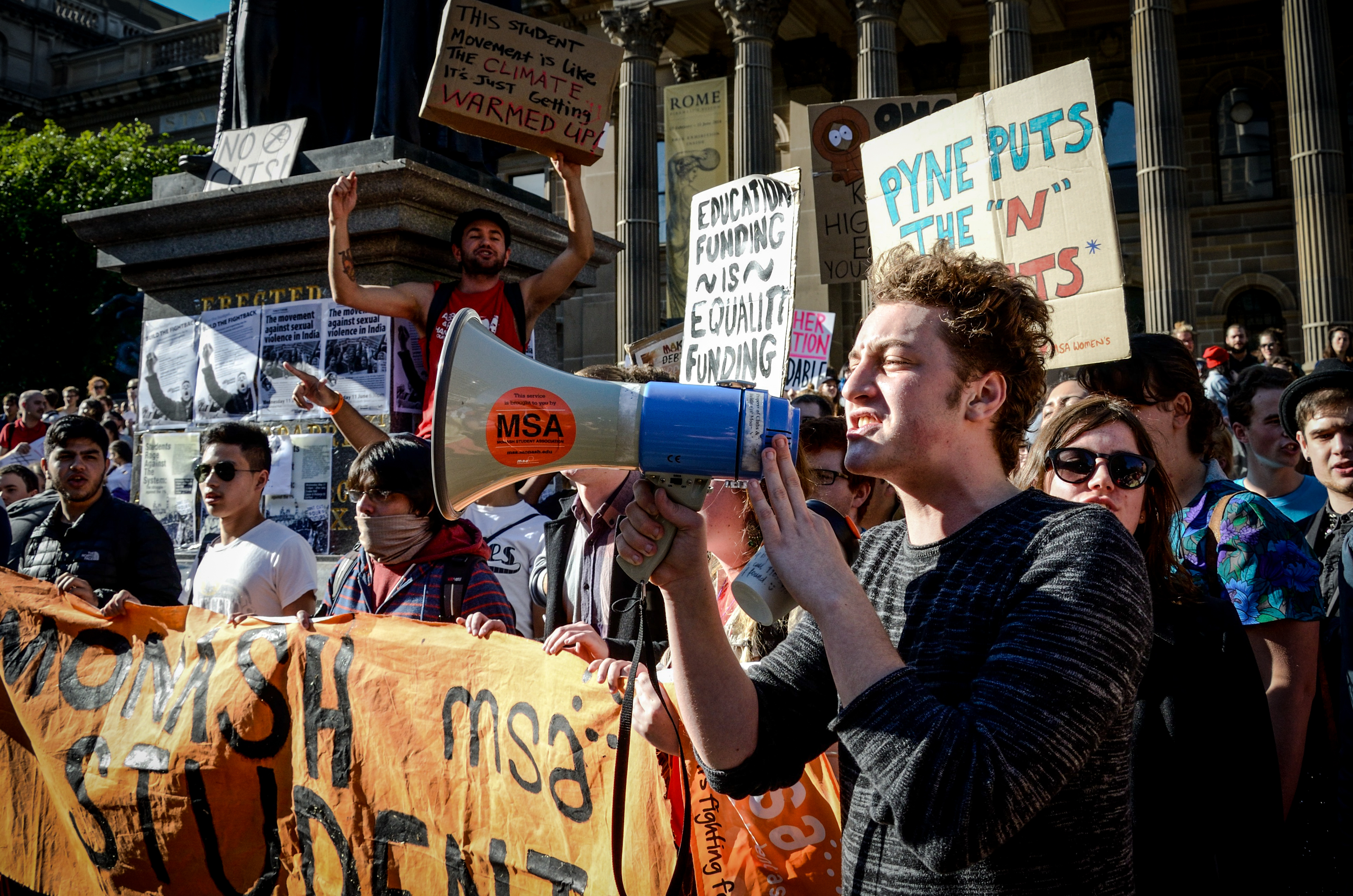Former Liberal MP Sophie Mirabella was escorted from a lecture theatre at the University of Melbourne today, after several students mobbed the lecturer, shouting through speakerphones and using physical force to convey their disdain.
The protest follows an incident last week, where Foreign Minister Julie Bishop narrowly escaped a scuffle at the University of Sydney, with angry uni students similarly mobbing Bishop in a university stairwell. They shouted: “No cuts, no fees, no corporate universities.”
David Baker, Associate Professor in the School of Applied Media and Social Sciences at Monash University, told Catalyst protests can be effective—but not necessarily in a direct way.
“The Federal Government aren’t going to change their budgetary ideology overnight because people have gone out on the street,” he said. “Protesting is a way of gaining attention to causes and … to grievances of people. Although it will put some pressure on the government, it doesn’t necessarily mean they will react to it.”
Professor Baker attributes several incidences of historical social change to protesting—specifically peaceful protesting. He cites the plight of the suffragettes, anti-conscription movements during the Vietnam War, and the end of apartheid.
However, he told Catalyst protests risk becoming counterproductive.
“Protests are better if they are peaceful and they don’t get out of hand,” he said. “Sometimes the ones that get publicity are the ones that do get out of hand, but they’re also the ones—protestors and their cause—condemned for what they’re protesting about.”
Benjamin Solah, creative writing student at RMIT University and member of Socialist Alternative, says the current level of protesting is not currently of counterproductive to the greater cause. Solah told Catalyst there have been several instances where students have confronted Liberal politicians which resulted in more extensive student participation.
“We’ve generally received wide support, with people saying good on you,” he said.
Despite increased media attention due to the intensity of the protests, research into the value of near-hostile protesting has suggested otherwise. Data from the Personality and Social Psychology Bulletin found “little support for the strategic use of violence in protest”, arguing activists must manage the dichotomy of raising awareness for their cause while also “remaining palatable to a bystander public”.
Cam Petrie, international studies student at RMIT University and President of the RMIT ALP club, has told Catalyst violent protests have the potential to sully the image and name of the cause.
“I think what these students have done is almost make martyrs out of the people they’re trying to protest against,” he said. “They’re making students as a whole look bad when we actually have some legitimate concerns about the government.
“Peaceful protesting is a really legitimate way of trying to effect change… Everyone has the right to express their own opinions and not be shouted down by those that don’t believe in them, on both sides.”
Protests against tertiary education cuts will continue this Wednesday, with a National Day of Action occurring across Australia.
Photograph by Finbar O’Mallon


